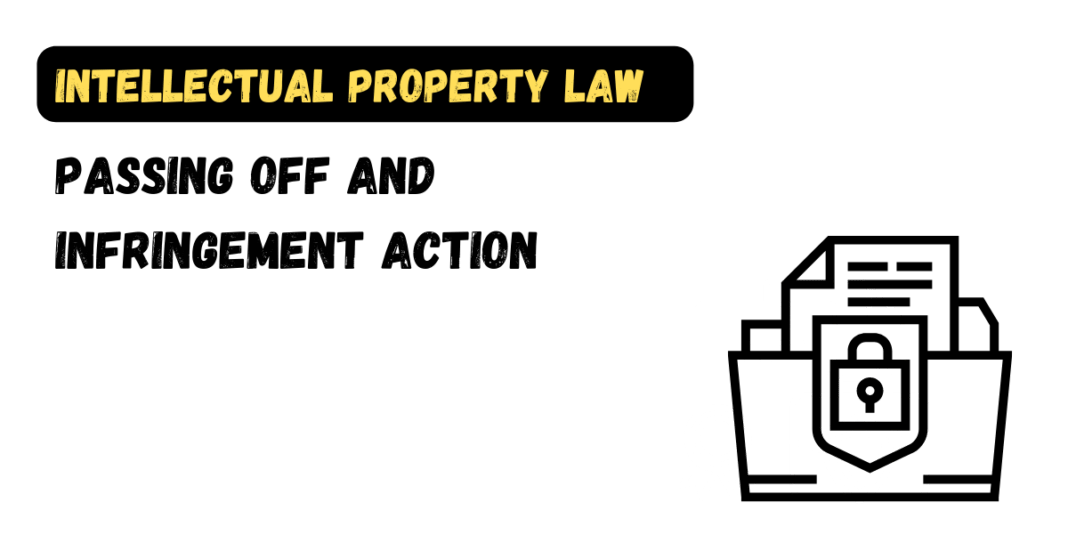Passing off and infringement are two legal actions that can be taken by trademark owners to protect their rights against unauthorized use of their trademark. Here’s a brief overview of these concepts:
Passing Off Action
Passing off is a legal action taken by a trademark owner to prevent the unauthorized use of their trademark by another person or company in a way that could cause confusion or deception among customers.
Passing off occurs when a third party uses a mark that is similar to the trademark of another person or company in a way that misrepresents the origin or quality of goods or services.
Example: If a company sells counterfeit products under the trademark of another company, it would be considered passing off. To succeed in a passing off action, the trademark owner must demonstrate that they have established goodwill or reputation associated with their trademark and that the use of a similar mark by the third party is likely to cause confusion or deception among customers.
Infringement Action
Infringement is a legal action taken by a trademark owner to prevent the unauthorized use of their trademark by another person or company.
Infringement occurs when a third party uses a trademark that is identical or similar to the registered trademark of another person or company in relation to goods or services that are the same or similar to those covered by the registered trademark.
To succeed in an infringement action, the trademark owner must demonstrate that they have a valid and registered trademark, that the third party is using a mark that is identical or similar to their trademark, and that the use of the mark by the third party is likely to cause confusion among customers.
In both passing off and infringement actions, the trademark owner can seek remedies such as injunctions to prevent the unauthorized use of their trademark, damages to compensate for any loss or harm caused by the unauthorized use, and orders for the destruction or removal of any goods or materials that bear the infringing trademark.





